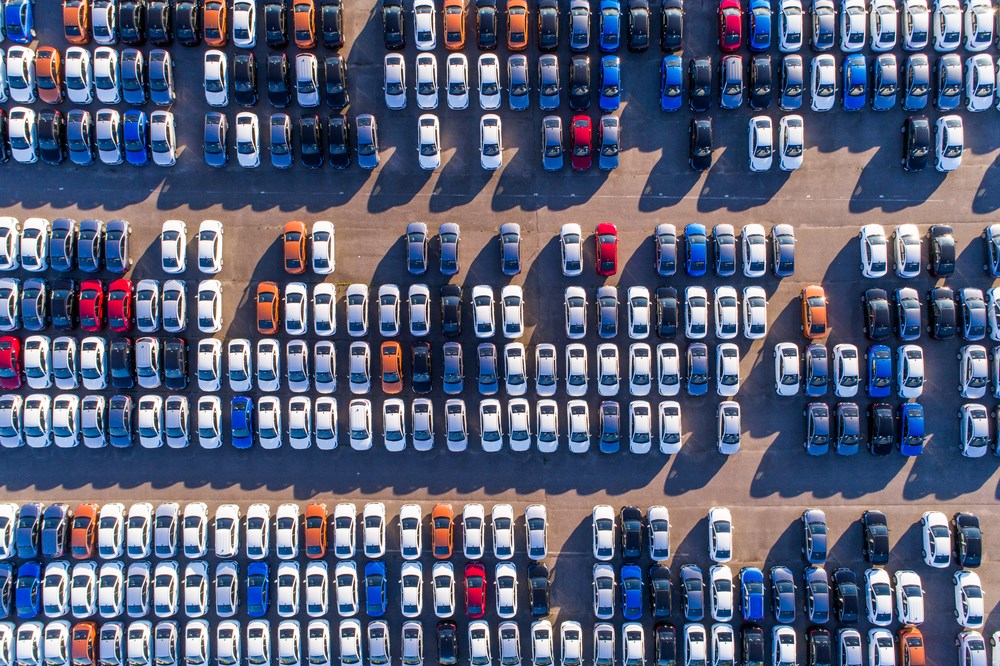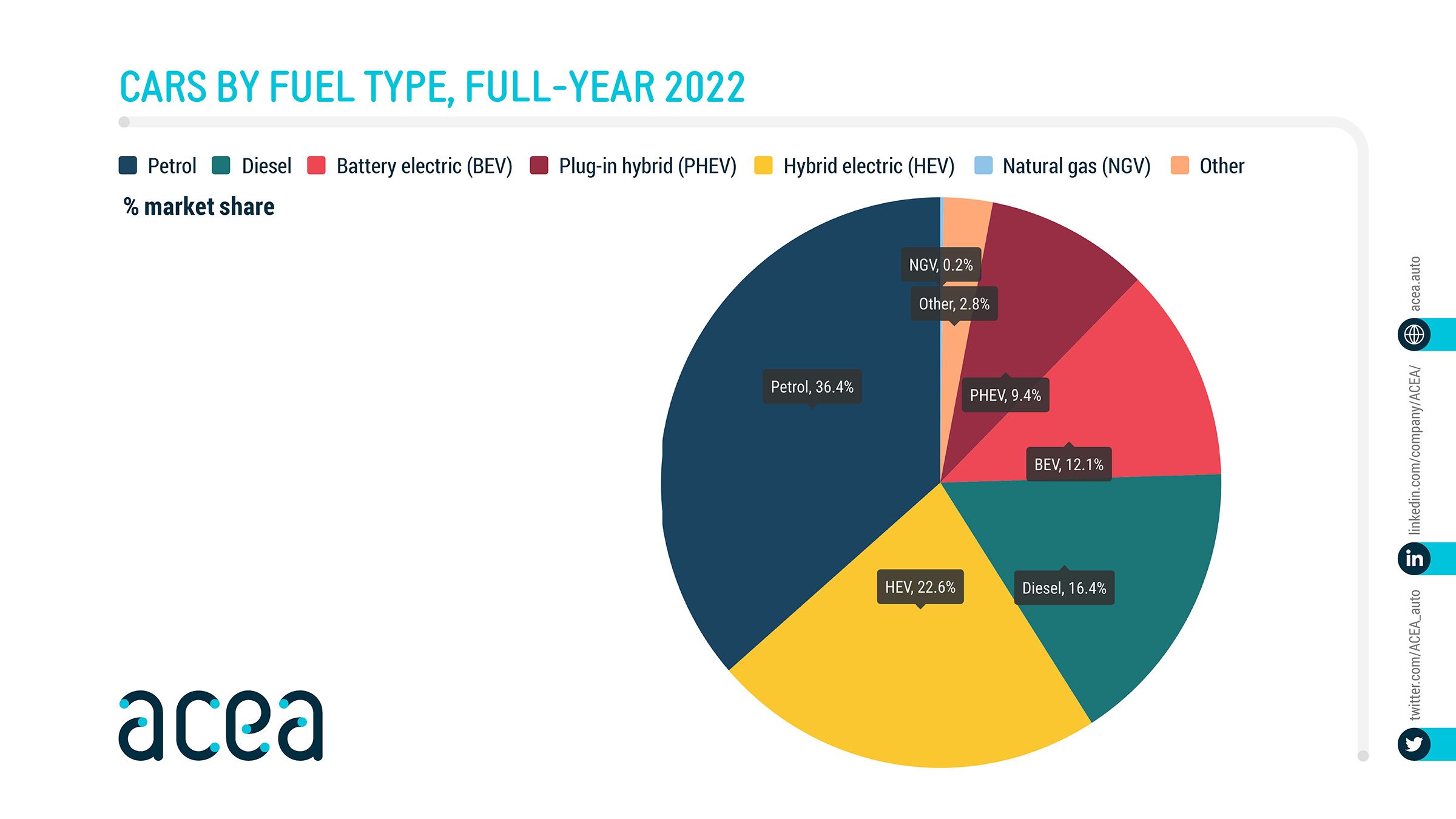With Europeans still buying mostly petrol and hybrid cars, renewable ethanol must play a role in reducing transport emissions
Europeans continue to buy mostly cars that run on petrol, highlighting the importance of EU policies that promote the use of renewable ethanol as the most effect way to reduce emissions from these vehicles.
The latest figures from ACEA, the European automobile manufacturers’ association, showed that sales of petrol and hybrid (both plug-in and mild versions) cars accounted for more than 68% of all new vehicles sold in 2022. Petrol cars remained the top-selling category, with 36.4%. Battery electric vehicles represented 12.1% of the new car sales, a 3-percentage-point increase over 2021.
Even with a de facto ban on the sale of most new vehicles with internal combustion engines from 2035, the cars being bought today will be on Europe’s roads for a long time. And, as ACEA has recently noted, many European countries still do not have the charging infrastructure in place to handle a massive increase in battery-electric vehicles.
Europe needs more than just one technology to decarbonise road transport and rolling out sustainable renewable fuels such as renewable ethanol is the most immediate, cost-effective, and socially inclusive solution at hand.
European renewable ethanol saves on average 77% GHG emissions compared to fossil fuel, and recent studies have shown that hybrid vehicles running on high-ethanol blends have lower GHG emissions than battery electric vehicles on a full-life-cycle basis.
Opening up to the contribution of renewable fuels as early as possible will not only help broaden the range of solution for all EU citizens and preserve affordability of mobility, but also lead to faster emission reduction.

